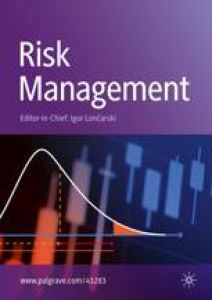

Robust management of climate risk damages
Risk Management 25, 15 (2023)
The authors consider the case of a risk manager or policymaker who does not know ...
Author(s):
Summary:
Risk Management 25, 15 (2023)
The authors consider the case of a risk manager or policymaker who does not know the true climate and economic parameters of the Dynamic Integrated Climate Economy (DICE) model and who, because of political or social constraints, cannot act optimally.
They find that the impact of parameter uncertainty on economic outcomes is much more pronounced away from optimality than along an optimal path. They also find that for this non-omniscient and politically constrained actor the most desirable of the feasible courses of actions depends strongly on which model is most uncertain. When they consider uncertainty in the growth rate of the economy or in the cost of abatement, a gradual ramp-up is preferred to a steep (‘Stern-like’) abatement schedule. This result is extremely robust to the choice of a number of non-expected-utility-maximization decisional criteria that do not make use of probabilities: minimax, maximax and maximin all give the same recommendation. Ambiguity aversion does not change these results. However, when even a small uncertainty in the damage function is considered, a steeper abatement schedule becomes a strong contender, and is preferred by some decisional criteria.
Furthermore, the ‘cross-over point’ for the damage exponent (the point, that is, above which an aggressive abatement schedule becomes preferred) is very close to the DICE value. This suggests that researching this aspect of climate modelling would have the greatest policy relevance.
Finally, they note that a gradual (‘Nordhaus-like’) ramp-up of the abatement efforts abatement schedule is always preferred to a slower (‘business-as-usual’) schedule of abatement even in the case of much stronger future economic growth or much milder climate damage than the central estimates of the DICE model.
| Type : | Academic Publication |
|---|---|
| Date : | 16/06/2023 |
| Editor : | Springer Nature |

